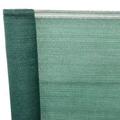Need Information About Plumbing? Check Out These Helpful Tips!
Nobody really wants to think about having a huge plumbing issue in their home that requires a plumber. That's because it can get expensive and can ruin your floors and other items in your home, if it gets out of hand. Never fear because you can learn to do your own to prevent such problems by following these tips below.
Before starting any plumbing project on your own be sure to do a great deal of research. There are many resources available to assist you in understanding your plumbing system and help you to avoid many common mistakes made by do-it-yourself novices. Reading about other people's mistakes can make the difference of saving or losing money.
Ensure that everyone in your household knows how to turn off the main water supply, or knows how to contact someone who can. In the event of a burst pipe or other water-related emergency, you should immediately turn off the water to prevent flooding, structural damage, and a sky-high water bill.
If you discover a frozen water pipe, turn on a nearby faucet so that thawed ice has a place to go. This will relive some of the pressure, and could prevent cracks from appearing.
You should drain all of the water out of the tank of your hot water heater at least once every three to six months. Draining all of the water out of the tank helps to prevent sediment build-up at the bottom of the tank. This sediment can cause the tank to bang or to heat less efficiently.
In cold climate areas, sometimes the pipes in the plumbing system freeze. You can thaw them out without calling a plumber. Before beginning this process, open the faucet and begin thawing closest to the faucet and then move down the line as sections thaw out. One method you can use is to wrap the pipe with a heavy towel or burlap and then pour hot water over it, set a bucket underneath to catch the water.
Use enzyme based cleaners when cleaning clogged pipes. This type of cleaner uses natural bacteria to transform sludge into liquid, that makes it disappear from the pipes. The best options on the market now are enzyme cleaners.
Never pour grease down the kitchen-sink drain. This will help you avoid clogs in your kitchen sink. Place grease in a can or other receptacles and dispose of in the trash. Grease that has congealed on pots, and pans can be wiped off with paper towels that can be thrown in the trash.
If you live in an area that sees routine freezing temperatures, make sure you do something to keep your pipes from becoming frozen as well. There are a wide variety of ways you can keep your pipes from freezing, which will help you avoid damage to your home and costly repairs.
Frozen pipes can lead to many problems, most of them expensive to fix. So you want to avoid that at all costs. To avoid frozen pipes, make sure the temperature in your home never drops below 55 degrees. Look for any air leaks around your pipes and make sure they're sealed up.
One way to avoid a common plumbing problem is to make sure never to flush anything but human waste and toilet paper down a toilet. Other things made of paper like tissues, paper towels, and the like do not dissolve the same way toilet paper does and can get stuck.
Plumbing can incredibly fickle and being left with a huge plumbing bill or water damage can be disappointing to say the least. Do yourself a favor and follow these tips to start fixing and installing your own plumbing.




